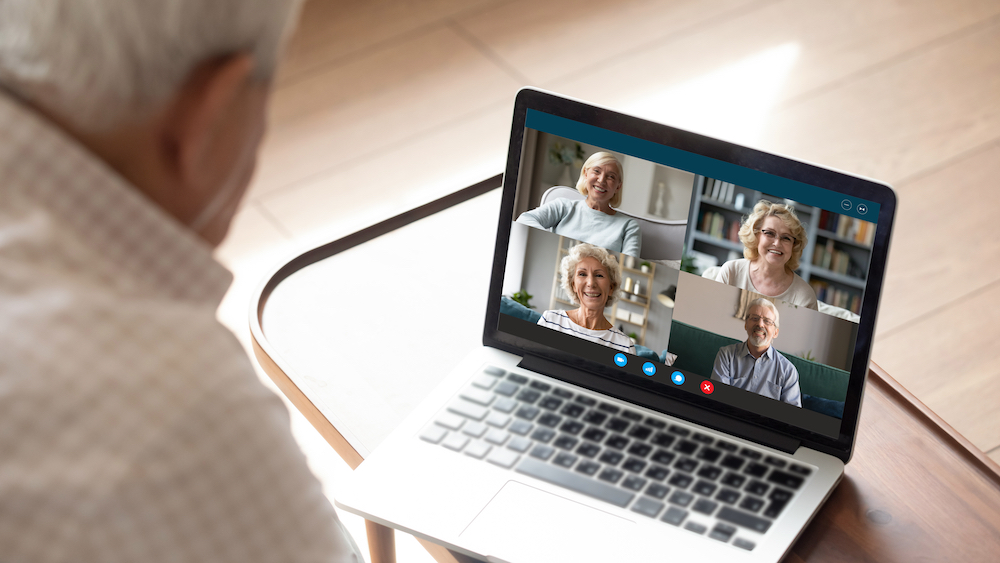Having and maintaining genuine human connections is an essential part of life. Family, friendships, life partners – they all add something meaningful to the human experience and give us someone to share it all with. However, as people age, they can sometimes begin to drift away from the people that they love and begin to isolate themselves. This on-set loneliness can be extremely detrimental to one’s health and well-being, leading to issues such as depression, anxiety, cognitive decline, and even heart disease.
So if you have a loved one who tends to isolate or seems to be lonely, what can you do? The most important part is staying in contact and keeping those bonds strong. So whether they reside in senior living in Vista, or they still live on their own, we have some information that could help.
Loneliness vs. Senior Isolation: Understanding the Difference
The demographic of people being aged 65 years or older is growing every day as the ‘Baby Boomer’ generation ages. Also, in light of the ongoing COVID-19 pandemic, many seniors have been forced to isolate themselves in their homes to avoid getting sick. This has created a recipe for declined mental health in many, but it is especially true in the older generation.
While loneliness and isolation are related, they do have some differences. Feeling lonely can happen at any time, even when you are surrounded by people or have regular contact with folks. Social isolation occurs when someone goes long periods without having social contact of any kind, or having a very small list of people that they can interact with.
Because of health changes and changes in social connections that come with age, it takes great effort to stay in contact and avoid senior isolation.
Impact on Health
If your senior loved one is struggling with loneliness and isolation, it may be time to consider making a change to their living arrangements, as it could really begin to affect their health. This could include transitioning to living with a trusted loved one, or even considering moving to a community such as senior living in Vista.
Here are some of the health concerns that those in isolation could be at greater risk for:
- High blood pressure
- Heart disease
- Depression
- Anxiety
- Weakened immune system
- Obesity
- Cognitive decline
Also, those who isolate themselves tend to get too little exercise, have poor diets, drink too much, smoke, and even don’t sleep well at night. All of these factors play huge roles in compromising one’s health.
Evaluating Risk Level
Obviously, these sorts of health problems are something you want to avoid, whether it be in yourself or for a senior loved one. So, how can you evaluate the risk level for isolation? We have some questions that you can ask yourself
- Does my loved one live alone? Can they leave their house?
- Have they recently experienced a traumatic or significant loss, such as the death of a spouse or best friend?
- Are they struggling with memory and remembering various day to day tasks?
- Are they losing track of money?
- Do they live in a rural, unsafe, or outlying area/ neighborhood?
- Do they have limited social support?
- Are they experiencing any language barriers?
- Are they avoiding or not participating in meaningful activities that used to be special to them, such as a craft group, religious organization, or other neighborhood activity?
- Do they lack transportation to get around places?
- Do they have access to technology that can keep them in touch with their friends and loved ones
Starting by asking these questions will help you evaluate and assess how your senior loved one is feeling and if they are at risk for prolonged isolation.
Staying Connected
The bottom line is this: if you want your senior to stay healthy and maintain an overall high quality of life, they have to socialize and keep connected to the world around them. While this can be difficult thanks to the pandemic, we do have some suggestions for things you can do to still enjoy time together. Of course, just be mindful of everyone’s health prior to engaging in these activities.
Learn Something New:
No one is too old to learn something new! Try having your senior sign up for a class at their local library or learning annex. Typically, these types of courses can either be done either face to face or even virtually. A cooking class, painting, a course about computer basics – doesn’t matter! This can be very engaging and get your senior interacting with the world around them.

Schedule Family Time:
If your loved one lives in senior living in Vista, or they reside at home, no matter how far away you are, technology makes it easy to connect with them! Schedule family time at least once a week, whether that be a phone call or Zoom or Skype chat. A video chat would allow you to play games and see each other’s smiles. Sending frequent letters or cards is also a great way to stay in touch and make your senior feel loved and thought of.
Adopt a Pet:
Pets make wonderful companions and help us keep a schedule. This is an especially great choice if your senior is now an ‘empty-nester’ and enjoyed raising kids who are now grown. Pets love unconditionally and can be a great outlet for socializing. Plus, your senior can take their dog on a walk or to the dog park and meet new friends! Having an animal can also lower blood pressure and be a great source of comfort.
Exercise Regularly:
Staying physically active is essential to being healthy! Ideally, adults need about two and half hours of exercise a week. So encourage your senior to lace up their sneakers and go for a walk around the neighborhood! Also, many senior community centers have group fitness classes that they can participate in. Here at our Vista senior living community, we offer a diverse activity calendar with plenty of fun things to do, too!






